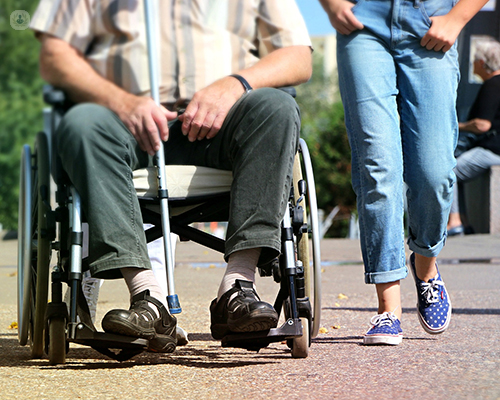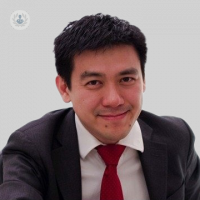Understanding neurorehabilitation: A quick guide for patients
Autore:Neurorehabilitation offers hope to individuals navigating the complexities of neurological conditions. It is a specialised branch of rehabilitation medicine dedicated to restoring function and enhancing the quality of life for those with neurological disorders, injuries, or diseases affecting the nervous system. Here, renowned consultant neurologist Professor James Teo explains when neurorehabilitation is recommended, and what type of therapies it entails.

What is neurorehabilitation?
Neurorehabilitation encompasses a multidisciplinary approach aimed at optimising the physical, cognitive, emotional, and social well-being of individuals with neurological impairments. These impairments may arise from various sources, including traumatic brain injuries, strokes, spinal cord injuries, multiple sclerosis, Parkinson's disease, and other neurodegenerative disorders.
When is it recommended?
Neurorehabilitation is recommended when individuals experience functional limitations or disabilities due to neurological conditions. It is typically initiated following the acute phase of injury or illness, once the individual's condition has stabilised. The timing of neurorehabilitation may vary depending on the specific diagnosis, severity of impairment, and individualised treatment plan determined by healthcare professionals.
What therapies are typically employed in neurorehabilitation?
- Physical therapy: Physical therapists focus on improving mobility, strength, balance, and coordination through targeted exercises, gait training, and assistive devices. They tailor treatment plans to address specific impairments and functional goals.
- Occupational therapy: Occupational therapists help individuals regain independence in activities of daily living, such as self-care, work, and leisure pursuits. They employ strategies to improve fine motor skills, cognitive function, and adaptive techniques for performing daily tasks.
- Speech-language therapy: Speech-language therapists specialise in assessing and treating communication disorders, speech impairments, and swallowing difficulties. They utilise techniques such as speech exercises, swallowing therapy, and augmentative communication devices to enhance communication and swallowing function.
- Cognitive rehabilitation: Cognitive rehabilitation focuses on improving cognitive abilities, such as attention, memory, problem-solving, and executive function. Therapists employ various techniques, including cognitive exercises, compensatory strategies, and environmental modifications, to optimise cognitive skills and facilitate community reintegration.
- Neuropsychological therapy: Neuropsychologists assess cognitive, emotional, and behavioral functioning to develop tailored interventions for individuals with neurological conditions. Therapy may involve cognitive-behavioral techniques, psychoeducation, and counseling to address emotional adjustment and coping strategies.
- Electrotherapy: Electrotherapy modalities, such as transcranial magnetic stimulation (TMS) and neuromuscular electrical stimulation (NMES), may be used to modulate neural activity, promote neuroplasticity, and facilitate motor recovery in selected cases.
- Assistive technology: Assistive devices and technologies, including mobility aids, communication devices, and adaptive equipment, play a crucial role in supporting independence and enhancing participation in daily activities for individuals with neurological impairments.
In conclusion, neurorehabilitation offers a holistic approach to addressing the diverse needs of individuals with neurological conditions. By integrating various therapies and interventions, neurorehabilitation strives to optimise functional outcomes, promote independence, and enhance overall quality of life for patients on their journey toward recovery and rehabilitation.
Professor James Teo is a renowned consultant neurologist based in London, currently practising privately at the Cleveland Clinic London Rehabilitation Unit. If you would like to book a consultation with Professor Teo, you can do so today via his Top Doctors profile.


